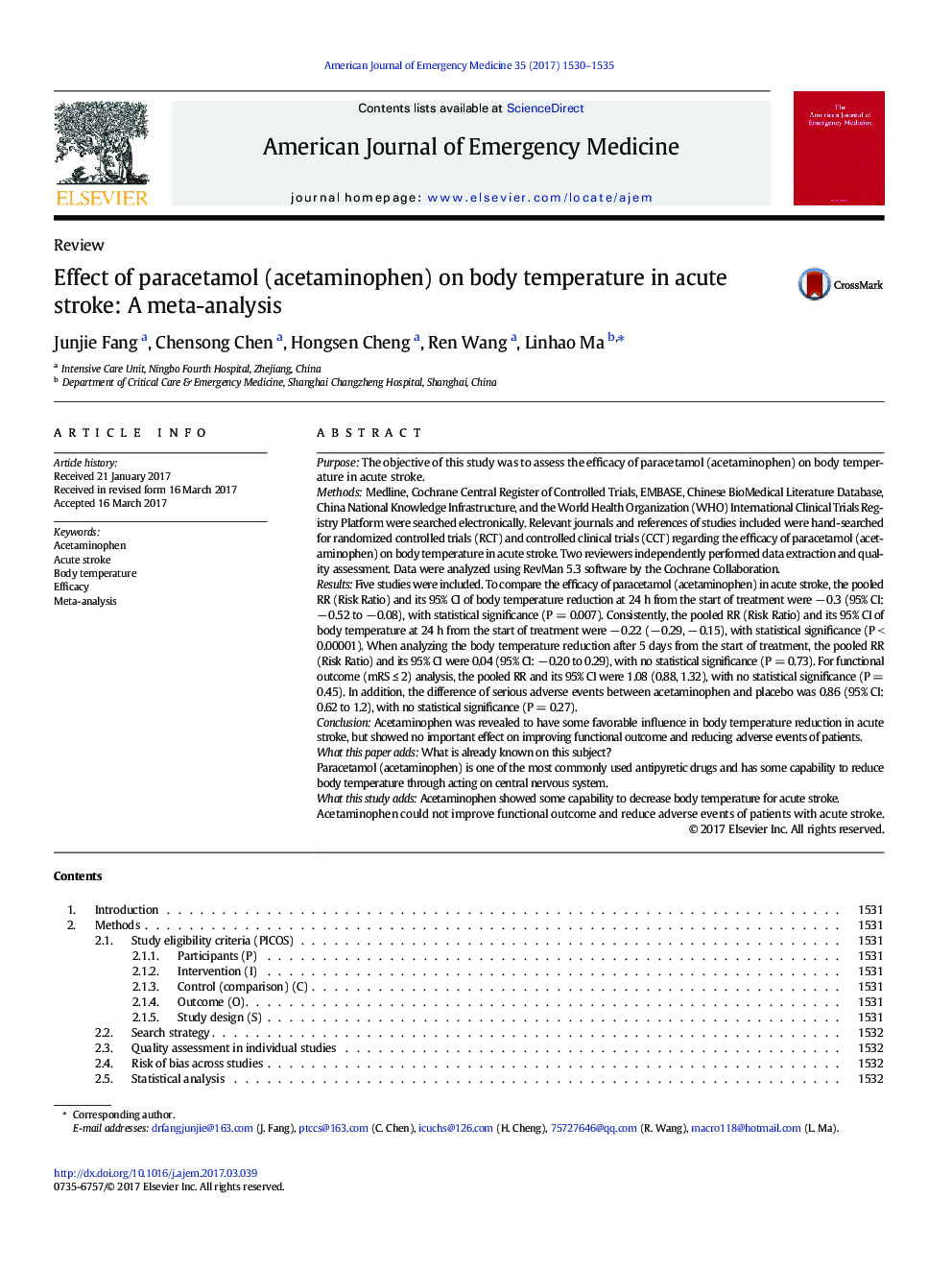| Article ID | Journal | Published Year | Pages | File Type |
|---|---|---|---|---|
| 5650445 | The American Journal of Emergency Medicine | 2017 | 6 Pages |
PurposeThe objective of this study was to assess the efficacy of paracetamol (acetaminophen) on body temperature in acute stroke.MethodsMedline, Cochrane Central Register of Controlled Trials, EMBASE, Chinese BioMedical Literature Database, China National Knowledge Infrastructure, and the World Health Organization (WHO) International Clinical Trials Registry Platform were searched electronically. Relevant journals and references of studies included were hand-searched for randomized controlled trials (RCT) and controlled clinical trials (CCT) regarding the efficacy of paracetamol (acetaminophen) on body temperature in acute stroke. Two reviewers independently performed data extraction and quality assessment. Data were analyzed using RevMan 5.3 software by the Cochrane Collaboration.ResultsFive studies were included. To compare the efficacy of paracetamol (acetaminophen) in acute stroke, the pooled RR (Risk Ratio) and its 95% CI of body temperature reduction at 24 h from the start of treatment were â 0.3 (95% CI: â 0.52 to â 0.08), with statistical significance (P = 0.007). Consistently, the pooled RR (Risk Ratio) and its 95% CI of body temperature at 24 h from the start of treatment were â 0.22 (â 0.29, â 0.15), with statistical significance (P < 0.00001). When analyzing the body temperature reduction after 5 days from the start of treatment, the pooled RR (Risk Ratio) and its 95% CI were 0.04 (95% CI: â 0.20 to 0.29), with no statistical significance (P = 0.73). For functional outcome (mRS â¤Â 2) analysis, the pooled RR and its 95% CI were 1.08 (0.88, 1.32), with no statistical significance (P = 0.45). In addition, the difference of serious adverse events between acetaminophen and placebo was 0.86 (95% CI: 0.62 to 1.2), with no statistical significance (P = 0.27).ConclusionAcetaminophen was revealed to have some favorable influence in body temperature reduction in acute stroke, but showed no important effect on improving functional outcome and reducing adverse events of patients.What this paper addsWhat is already known on this subject?Paracetamol (acetaminophen) is one of the most commonly used antipyretic drugs and has some capability to reduce body temperature through acting on central nervous system.What this study addsAcetaminophen showed some capability to decrease body temperature for acute stroke.Acetaminophen could not improve functional outcome and reduce adverse events of patients with acute stroke.
